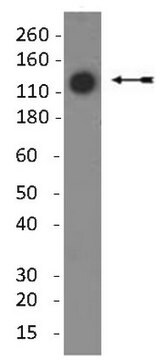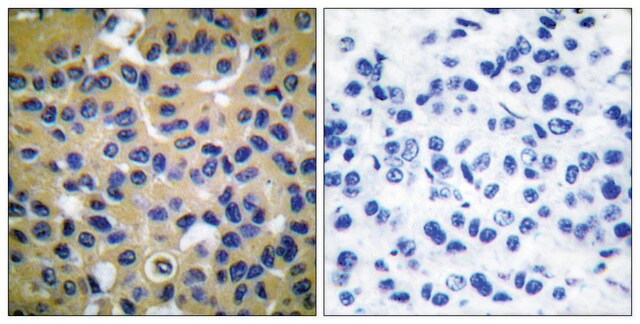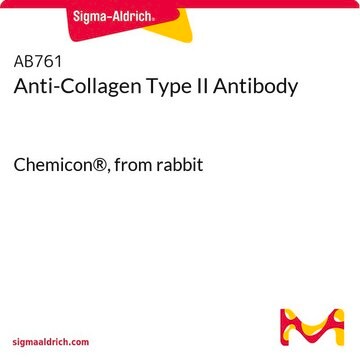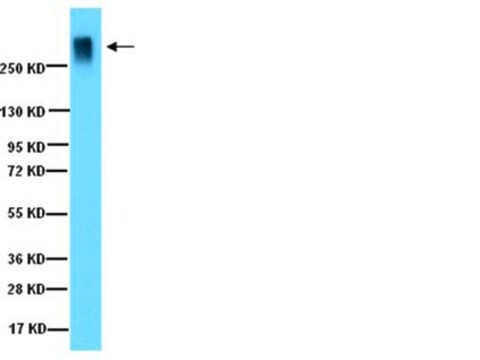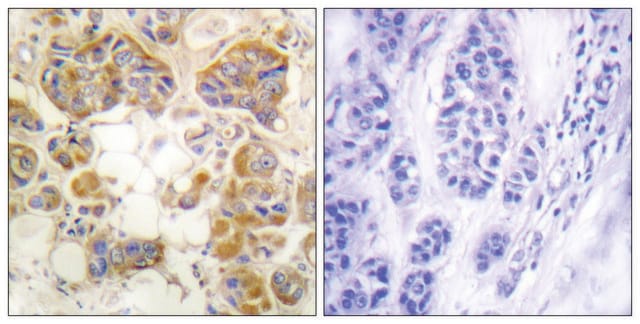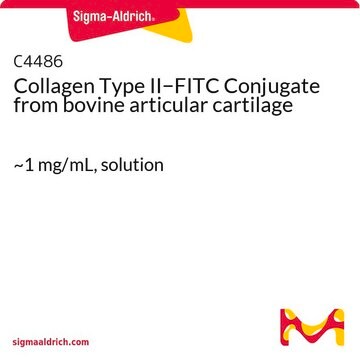ZRB1201
Anti-Collagen Type II Antibody, clone 1K11 ZooMAb® Rabbit Monoclonal

recombinant, expressed in HEK 293 cells
Synonym(s):
Collagen alpha-1(II) chain;Alpha-1 type II collagen
About This Item
Recommended Products
biological source
rabbit
Quality Level
recombinant
expressed in HEK 293 cells
conjugate
unconjugated
antibody form
purified antibody
antibody product type
primary antibodies
clone
1K11, recombinant monoclonal
description
recombinant, expressed in HEK 293 cells
product line
ZooMAb® learn more
form
lyophilized
mol wt
calculated mol wt 141.79 kDa
observed mol wt ~140 kDa
purified by
using Protein A
species reactivity
human, chicken
species reactivity (predicted by homology)
equine, porcine, monkey, bovine, feline, canine
packaging
antibody small pack of 25 μL
greener alternative product characteristics
Waste Prevention
Designing Safer Chemicals
Design for Energy Efficiency
Learn more about the Principles of Green Chemistry.
enhanced validation
recombinant expression
Learn more about Antibody Enhanced Validation
sustainability
Greener Alternative Product
technique(s)
ELISA: suitable
flow cytometry: suitable
immunocytochemistry: suitable
immunohistochemistry: suitable
western blot: suitable
isotype
IgG
epitope sequence
C-terminal half
Protein ID accession no.
UniProt accession no.
greener alternative category
shipped in
ambient
storage temp.
2-8°C
target post-translational modification
unmodified
Gene Information
human ... COL2A1(1280)
General description
Immunogen
Application
Evaluated by Western Blotting on Pepsin digest of Chicken sternal collagen Type II.
Western Blotting Analysis (WB): A 1:1,000 dilution of this antibody detected Pepsin digest of Chicken sternal collagen Type II.
Tested applications
Immunocytochemistry Analysis: A 1:100 dilution from a representative lot detected Collagen Type II in Human chondrocytes.
Immunohistochemistry (Paraffin) Analysis: A 1:100 dilution from a representative lot detected Collagen Type II in Human cartilage tissue sections.
Flow Cytometry Analysis: 1 μg from a representative lot detected Collagen Type II in one million Human chondrocytes.
Enzyme Immunoassay Analysis (ELISA): Serial dilutions from a representative lot detected purified Human Collagen Type II.
Note: Actual optimal working dilutions must be determined by end user as specimens, and experimental conditions may vary with the end user
Evaluated by Western Blotting on Pepsin digest of Chicken sternal collagen Type II.
Western Blotting Analysis (WB): A 1:1,000 dilution of this antibody detected Pepsin digest of Chicken sternal collagen Type II.
Target description
Physical form
Storage and Stability
Legal Information
Disclaimer
Not finding the right product?
Try our Product Selector Tool.
Storage Class
11 - Combustible Solids
wgk_germany
WGK 1
Choose from one of the most recent versions:
Certificates of Analysis (COA)
Don't see the Right Version?
If you require a particular version, you can look up a specific certificate by the Lot or Batch number.
Already Own This Product?
Find documentation for the products that you have recently purchased in the Document Library.
Our team of scientists has experience in all areas of research including Life Science, Material Science, Chemical Synthesis, Chromatography, Analytical and many others.
Contact Technical Service